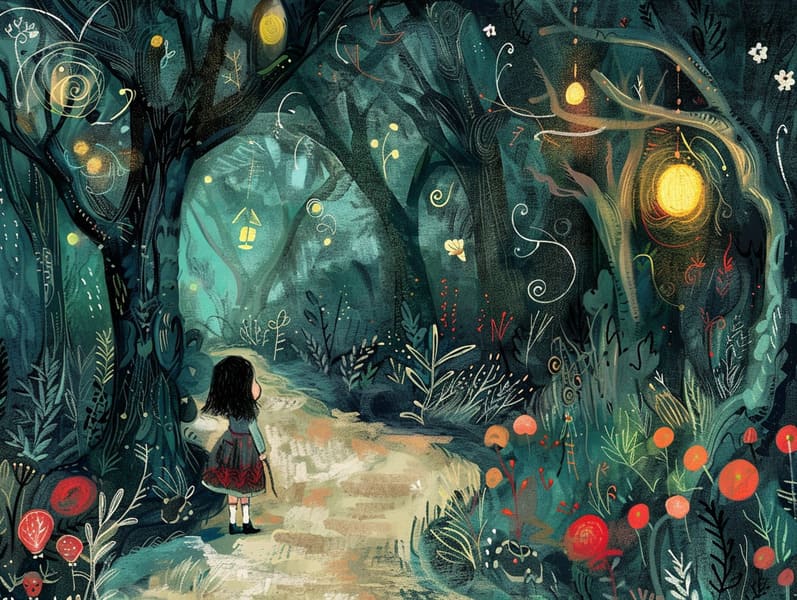Understanding the Joy of Evening Adventures: Building Beloved Occasions with Your Loved Ones
Understanding the Joy of Evening Adventures: Building Beloved Occasions with Your Loved Ones
Blog Article

Evening is a special time for kids and their parents. It’s a chance to wind down, nestle in, and enjoy the joy of stories.
For ages, sleep stories for kids have been a beloved ritual, offering more than just a way to nod off. They provide an opportunity for affection, education, and fostering imagination.
Why Bedtime Stories Matter
Nightly tales for children are more than just a way to finish the day. They play a key role in a child’s growth and in building the caregiver-child rapport. Here’s why they are beneficial:
1. Closeness Moments: Nightly storytelling strengthens a special loving connection between caregivers and children. It’s a moment of proximity that helps children feel loved and secure.
2. Vocabulary Building: Absorbing tales helps children develop their communication skills. They learn new language, understand form, and develop their auditory and grasping abilities.
3. Creative Development: Narratives for little ones usher them to fantastic worlds, nurturing fantasy. They visualize characters, settings, and adventures, which powers their creative thinking.
4. Emotional Understanding: Stories for children often include characters facing difficulties and feelings. These plots help kids grasp and work through their own moods, encouraging emotional maturity.
5. Intellectual Growth: Being read a tale helps children develop awareness, remembering, and analytical skills. They learn to follow tales, remember details, and project conclusions.
Making Bedtime Stories a Daily Practice
Starting a bedtime custom that incorporates reading aloud stories is manageable and satisfying. Here’s how to ensure it becomes a important part of your bedtime tradition:
1. Find a Cozy Place: Pick a quiet place where you and your child can cuddle without noise. A peaceful bed or a cozy reading nook works ideally.
2. Pick the Right Time: Determine a designated time each night for bedtime stories. Regularity helps children predict and makes the routine more manageable.
3. Pick Stories for Their Age: Identify tales that are right for your child’s age. Preschoolers might be engaged by easy books with uncomplicated narratives, while school-age kids may be interested in longer stories with more complex plots.
4. Bring the Story to Life: Make sure the tale become real by employing different voices for characters, adding special sounds, and getting your child to be active. Ask things about the story to keep them focused.
5. Set a Tranquil Atmosphere: Softly light the lights, use hushed tones, and create a soothing environment to help your child wind down.
How to Find Top Bedtime Stories
There are numerous choices where you can find fantastic bedtime stories for children. Here are some ideas to check out:
1. Children’s Literature: Visit your local library or bookstore to find a diverse selection of bedtime stories for kids. Exploring the aisles together can be a wonderful activity that also enables children to get stories that they like.
2. Internet Resources: There are many online platforms that offer free bedtime stories. Sites like free story websites provide a variety of short stories for kids that you can print out. These platforms are great for finding new and diverse stories without expense.
3. Apps and Audiobooks: For nights when you’re too drained to read, look into audiobooks or storytelling apps. These can provide a quiet narration to read your child a story, ensuring they still get their bedtime story fix. Apps often offer engaging components that can keep kids interested further.
4. Individualized Stories: Craft your own stories reflecting your child’s hobbies. Personalized stories can be highly engaging and meaningful. You can incorporate your child in the narration process, making them a part of the adventure.
Shorter Story Benefits
Short bedtime stories are very advantageous for bedtime. They provide all the positives of longer stories but are more succinct, making them perfect for relaxing before sleep. Here’s why short stories are a wonderful choice:
1. Straightforward: To-the-point tales are direct and understandable for kids, even after a long day. They can quickly grasp the plot and enjoy the story without getting lost.
2. Quick Engagement: Compact stories swiftly engage children, seizing check it out their involvement and creativity. This makes them perfect for keeping bedtime customs manageable yet enjoyable.
3. Various Options: Quick stories give for variety in your bedtime reading. You can get a different story each night, keeping the practice exciting and exciting for your child.
4. Time Management: For busy parents, short stories are a quick way to verify children still get their nightly dose of storytelling. They fit well into a hectic schedule while still offering the full good points of a bedtime story.
Why "Read Me a Story" is Powerful
The simple phrase, “Tell me a story,” can open a world of magic for children. Answering to this request not only meets a child’s want for attention and engagement but also fosters lasting recollections. Here’s why it’s wonderful:
1. Connection: Sharing stories to your child develops a deep emotional link. It’s a time for togetherness, sharing, and bonding.
2. Legacy: Establishing a bedtime story tradition creates a valued tradition that children anticipate every night. It’s a ritual that can be given through generations.
3. Shared Learning: As you narrate, you’ll witness your child’s maturation and learning. Their interest, reactions, and understanding of the stories develop, offering insights into their developing minds.
4. Safe Space: Bedtime stories provide a safe space for children to navigate emotions, face fears, and find comfort in the familiar presence of a parent.
Final Note
Nightly tales for children are a vital tool for encouraging a child’s maturation and building unforgettable memories of closeness.